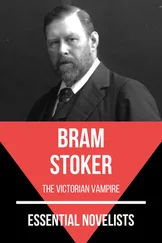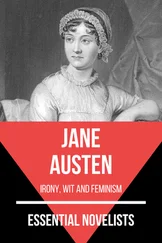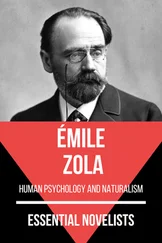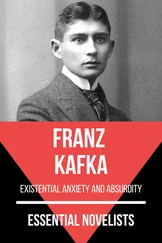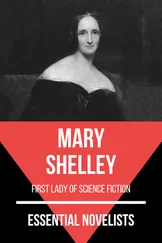August Nemo - Essential Novelists - Joseph Conrad
Здесь есть возможность читать онлайн «August Nemo - Essential Novelists - Joseph Conrad» — ознакомительный отрывок электронной книги совершенно бесплатно, а после прочтения отрывка купить полную версию. В некоторых случаях можно слушать аудио, скачать через торрент в формате fb2 и присутствует краткое содержание. Жанр: unrecognised, на английском языке. Описание произведения, (предисловие) а так же отзывы посетителей доступны на портале библиотеки ЛибКат.
- Название:Essential Novelists - Joseph Conrad
- Автор:
- Жанр:
- Год:неизвестен
- ISBN:нет данных
- Рейтинг книги:3 / 5. Голосов: 1
-
Избранное:Добавить в избранное
- Отзывы:
-
Ваша оценка:
- 60
- 1
- 2
- 3
- 4
- 5
Essential Novelists - Joseph Conrad: краткое содержание, описание и аннотация
Предлагаем к чтению аннотацию, описание, краткое содержание или предисловие (зависит от того, что написал сам автор книги «Essential Novelists - Joseph Conrad»). Если вы не нашли необходимую информацию о книге — напишите в комментариях, мы постараемся отыскать её.
For this book, the literary critic August Nemo has chosen the two most important and meaningful novels ofJoseph Conradwhich are Heart of Darkness andLord Jim.
After a sea-faring career in the French and British merchant marines, Joseph Conrad wrote short stories and novels which combined his experiences in remote places with an interest in moral conflict and the dark side of human nature.
Novels selected for this book:
– Heart of Darkness
– Lord Jim
This is one of many books in the seriesEssential Novelists. If you liked this book, look for the other titles in the series, we are sure you will like some of the authors.
Essential Novelists - Joseph Conrad — читать онлайн ознакомительный отрывок
Ниже представлен текст книги, разбитый по страницам. Система сохранения места последней прочитанной страницы, позволяет с удобством читать онлайн бесплатно книгу «Essential Novelists - Joseph Conrad», без необходимости каждый раз заново искать на чём Вы остановились. Поставьте закладку, и сможете в любой момент перейти на страницу, на которой закончили чтение.
Интервал:
Закладка:
"I did not see the real significance of that wreck at once. I fancy I see it now, but I am not sure—not at all. Certainly the affair was too stupid—when I think of it—to be altogether natural. Still. . . . But at the moment it presented itself simply as a confounded nuisance. The steamer was sunk. They had started two days before in a sudden hurry up the river with the manager on board, in charge of some volunteer skipper, and before they had been out three hours they tore the bottom out of her on stones, and she sank near the south bank. I asked myself what I was to do there, now my boat was lost. As a matter of fact, I had plenty to do in fishing my command out of the river. I had to set about it the very next day. That, and the repairs when I brought the pieces to the station, took some months.
"My first interview with the manager was curious. He did not ask me to sit down after my twenty-mile walk that morning. He was commonplace in complexion, in features, in manners, and in voice. He was of middle size and of ordinary build. His eyes, of the usual blue, were perhaps remarkably cold, and he certainly could make his glance fall on one as trenchant and heavy as an ax. But even at these times the rest of his person seemed to disclaim the intention. Otherwise there was only an indefinable, faint expression of his lips, something stealthy—a smile—not a smile—I remember it, but I can't explain. It was unconscious, this smile was, though just after he had said something it got intensified for an instant. It came at the end of his speeches like a seal applied on the words to make the meaning of the commonest phrase appear absolutely inscrutable. He was a common trader, from his youth up employed in these parts—nothing more. He was obeyed, yet he inspired neither love nor fear, nor even respect. He inspired uneasiness. That was it! Uneasiness. Not a definite mistrust—just uneasiness—nothing more. You have no idea how effective such a . . . a . . . faculty can be. He had no genius for organizing, for initiative, or for order even. That was evident in such things as the deplorable state of the station. He had no learning, and no intelligence. His position had come to him—why? Perhaps because he was never ill . . . He had served three terms of three years out there . . . Because triumphant health in the general rout of constitutions is a kind of power in itself. When he went home on leave he rioted on a large scale—pompously. Jack ashore—with a difference—in externals only. This one could gather from his casual talk. He originated nothing, he could keep the routine going—that's all. But he was great. He was great by this little thing that it was impossible to tell what could control such a man. He never gave that secret away. Perhaps there was nothing within him. Such a suspicion made one pause—for out there there were no external checks. Once when various tropical diseases had laid low almost every 'agent' in the station, he was heard to say, 'Men who come out here should have no entrails.' He sealed the utterance with that smile of his, as though it had been a door opening into a darkness he had in his keeping. You fancied you had seen things—but the seal was on. When annoyed at meal-times by the constant quarrels of the white men about precedence, he ordered an immense round table to be made, for which a special house had to be built. This was the station's mess-room. Where he sat was the first place—the rest were nowhere. One felt this to be his unalterable conviction. He was neither civil nor uncivil. He was quiet. He allowed his 'boy'—an overfed young negro from the coast—to treat the white men, under his very eyes, with provoking insolence.
"He began to speak as soon as he saw me. I had been very long on the road. He could not wait. Had to start without me. The up-river stations had to be relieved. There had been so many delays already that he did not know who was dead and who was alive, and how they got on—and so on, and so on. He paid no attention to my explanations, and, playing with a stick of sealing-wax, repeated several times that the situation was 'very grave, very grave.' There were rumors that a very important station was in jeopardy, and its chief, Mr. Kurtz, was ill. Hoped it was not true. Mr. Kurtz was . . . I felt weary and irritable. Hang Kurtz, I thought. I interrupted him by saying I had heard of Mr. Kurtz on the coast. 'Ah! So they talk of him down there,' he murmured to himself. Then he began again, assuring me Mr. Kurtz was the best agent he had, an exceptional man, of the greatest importance to the Company; therefore I could understand his anxiety. He was, he said, 'very, very uneasy.' Certainly he fidgeted on his chair a good deal, exclaimed, 'Ah, Mr. Kurtz!' broke the stick of sealing-wax and seemed dumbfounded by the accident. Next thing he wanted to know 'how long it would take to' . . . I interrupted him again. Being hungry, you know, and kept on my feet too, I was getting savage. 'How could I tell,' I said. 'I hadn't even seen the wreck yet—some months, no doubt.' All this talk seemed to me so futile. 'Some months,' he said. 'Well, let us say three months before we can make a start. Yes. That ought to do the affair.' I flung out of his hut (he lived all alone in a clay hut with a sort of veranda) muttering to myself my opinion of him. He was a chattering idiot. Afterwards I took it back when it was borne in upon me startlingly with what extreme nicety he had estimated the time requisite for the 'affair.'
"I went to work the next day, turning, so to speak, my back on that station. In that way only it seemed to me I could keep my hold on the redeeming facts of life. Still, one must look about sometimes; and then I saw this station, these men strolling aimlessly about in the sunshine of the yard. I asked myself sometimes what it all meant. They wandered here and there with their absurd long staves in their hands, like a lot of faithless pilgrims bewitched inside a rotten fence. The word 'ivory' rang in the air, was whispered, was sighed. You would think they were praying to it. A taint of imbecile rapacity blew through it all, like a whiff from some corpse. By Jove! I've never seen anything so unreal in my life. And outside, the silent wilderness surrounding this cleared speck on the earth struck me as something great and invincible, like evil or truth, waiting patiently for the passing away of this fantastic invasion.
"Oh, these months! Well, never mind. Various things happened. One evening a grass shed full of calico, cotton prints, beads, and I don't know what else, burst into a blaze so suddenly that you would have thought the earth had opened to let an avenging fire consume all that trash. I was smoking my pipe quietly by my dismantled steamer, and saw them all cutting capers in the light, with their arms lifted high, when the stout man with mustaches came tearing down to the river, a tin pail in his hand, assured me that everybody was 'behaving splendidly, splendidly,' dipped about a quart of water and tore back again. I noticed there was a hole in the bottom of his pail.
"I strolled up. There was no hurry. You see the thing had gone off like a box of matches. It had been hopeless from the very first. The flame had leaped high, driven everybody back, lighted up everything—and collapsed. The shed was already a heap of embers glowing fiercely. A nigger was being beaten near by. They said he had caused the fire in some way; be that as it may, he was screeching most horribly. I saw him, later on, for several days, sitting in a bit of shade looking very sick and trying to recover himself: afterwards he arose and went out—and the wilderness without a sound took him into its bosom again. As I approached the glow from the dark I found myself at the back of two men, talking. I heard the name of Kurtz pronounced, then the words, 'take advantage of this unfortunate accident.' One of the men was the manager. I wished him a good evening. 'Did you ever see anything like it—eh? it is incredible,' he said, and walked off. The other man remained. He was a first-class agent, young, gentlemanly, a bit reserved, with a forked little beard and a hooked nose. He was stand-offish with the other agents, and they on their side said he was the manager's spy upon them. As to me, I had hardly ever spoken to him before. We got into talk, and by-and-by we strolled away from the hissing ruins. Then he asked me to his room, which was in the main building of the station. He struck a match, and I perceived that this young aristocrat had not only a silver-mounted dressing-case but also a whole candle all to himself. Just at that time the manager was the only man supposed to have any right to candles. Native mats covered the clay walls; a collection of spears, assegais, shields, knives was hung up in trophies. The business intrusted to this fellow was the making of bricks—so I had been informed; but there wasn't a fragment of a brick anywhere in the station, and he had been there more than a year—waiting. It seems he could not make bricks without something, I don't know what—straw maybe. Anyways, it could not be found there, and as it was not likely to be sent from Europe, it did not appear clear to me what he was waiting for. An act of special creation perhaps. However, they were all waiting—all the sixteen or twenty pilgrims of them—for something; and upon my word it did not seem an uncongenial occupation, from the way they took it, though the only thing that ever came to them was disease—as far as I could see. They beguiled the time by backbiting and intriguing against each other in a foolish kind of way. There was an air of plotting about that station, but nothing came of it, of course. It was as unreal as everything else—as the philanthropic pretense of the whole concern, as their talk, as their government, as their show of work. The only real feeling was a desire to get appointed to a trading-post where ivory was to be had, so that they could earn percentages. They intrigued and slandered and hated each other only on that account,—but as to effectually lifting a little finger—oh, no. By heavens! there is something after all in the world allowing one man to steal a horse while another must not look at a halter. Steal a horse straight out. Very well. He has done it. Perhaps he can ride. But there is a way of looking at a halter that would provoke the most charitable of saints into a kick.
Читать дальшеИнтервал:
Закладка:
Похожие книги на «Essential Novelists - Joseph Conrad»
Представляем Вашему вниманию похожие книги на «Essential Novelists - Joseph Conrad» списком для выбора. Мы отобрали схожую по названию и смыслу литературу в надежде предоставить читателям больше вариантов отыскать новые, интересные, ещё непрочитанные произведения.
Обсуждение, отзывы о книге «Essential Novelists - Joseph Conrad» и просто собственные мнения читателей. Оставьте ваши комментарии, напишите, что Вы думаете о произведении, его смысле или главных героях. Укажите что конкретно понравилось, а что нет, и почему Вы так считаете.

